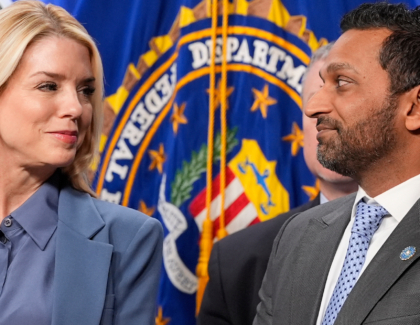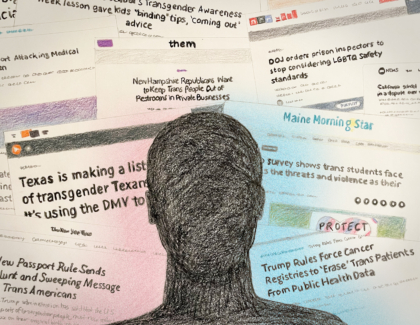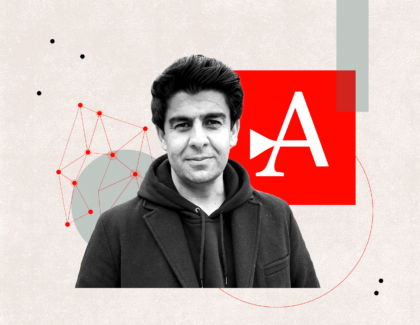Sign up for the daily CJR newsletter.
Two days ago, the Trump appointees now overseeing the US Agency for International Development fired roughly two thousand members of the organization’s domestic staff and placed thousands of those working overseas on administrative leave. It was the latest development in a saga that began on Inauguration Day, when President Trump signed an executive order freezing international aid for ninety days—making good on the protectionist promises on which he so vigorously campaigned. (“The United States foreign aid industry and bureaucracy are not aligned with American interests and in many cases antithetical to American values,” the order read.) Trump’s first attempt to dismantle the agency was challenged in court by two unions representing USAID employees, but on Friday the judge on the case, a presidential appointee named Carl Nichols, ruled that the process should be allowed to move forward. Two days later, USAID staff received a memo later published on the agency’s website informing them of the massive “Reduction-in-Force.” By painful coincidence, the following day marked three years since Russian president Vladimir Putin began his full-scale invasion of Ukraine, a war that has exacerbated the country’s need for foreign aid. The news added gravity to an already bleak anniversary.
Back in January, shortly after Trump announced the initial freeze, Ukrainian journalist Olga Rudenko described the impact USAID has had on journalism in the country in an op-ed for the Kyiv Independent, where she serves as editor: “For years, foreign government grants have been the lifeblood of Ukraine’s independent media,” she wrote. “The sudden freeze of US aid has caused harm to independent Ukrainian journalism on par with the COVID-19 pandemic and the onset of Russia’s full-scale war. If not renewed soon, its impact can surpass both in severity.” Independent Ukrainian news outlets face fierce competition from those owned and operated by the country’s oligarchy—media that, Rudenko wrote, are “lavishly funded but designed to serve their owners’ interests rather than the public good.” The situation has become more dire since the invasion in 2022, when ad revenue became much harder to come by. Andrey Boborykin, CEO of Ukrainska Pravda, another prominent independent outlet, echoed this sentiment. “At the local level, it’s basically a battlefield,” he told me, destroying almost any opportunity to monetize. “But people still need access to information.”
Boborykin was frank about what the loss of USAID funding means for journalism in the country, particularly for small outlets reporting in embattled communities close to the border with Russia. “The effect is close to catastrophic,” he said, noting that there has already been an increase in competition for EU grants. “Not every outlet will survive.” The vacuum left behind, Boborykin worries, will be filled by Russian disinformation as well as propaganda generated by Ukrainian political infighting. “It’s a dangerous situation that can only be dealt with by independent media,” he said. “This will be a big reversal of everything that has been done by American freedom-of-speech support programs in the last thirty years.”
In preparation for writing this newsletter, I listened to Joe Rogan’s recent conversation with Mike Benz, an alt-right content creator who worked in the State Department during Trump’s first term, about USAID. The experience was chilling. The conversation ran about three and a half hours and centered (as far as I could tell—the logic was hazy at times) on Benz’s contention that USAID is not only wasteful but serves as a tool for sinister manipulation of state enemies both overseas and domestically. There is, I believe, legitimate reason to be highly skeptical of US statecraft and, as Jon Allsop wrote for CJR earlier this month, critiques of USAID have historically come from the left. In a recent New York Times piece about Rogan’s interview with Benz, Charles Homans wrote that, “for decades, influential thinkers on the left have criticized American soft-power programs, covert operations and military presence abroad as parts of a particularly American form of imperialism.” What I found most striking about the interview, though, was the assuredness with which it lifted this analysis and spun it to discredit some of USAID’s most soundly democratic initiatives, including the work of thousands of journalists. Throughout the conversation, Benz insisted that “independent media” supported by USAID is a front for gathering evidence against political leaders that the US doesn’t like (the evidence, he explained, can be used to prosecute them in local courts).
I put Benz’s argument to Boborykin. “I honestly think that this is nonsense,” he said. The projects Ukrainska Pravda has used USAID money for, he said, include things like investigations into abuse of power by Ukrainian oligarchs and reports about defiance of EU oil sanctions—none of which were done with any editorial oversight or direction from any US officials. Boborykin said that it’s true that the projects serve American foreign interests—in that they promote democracy (which, he added, “used to be in the interest of the United States”). And, according to Boborykin, journalism done by small local outlets is one of the only things that can ensure that the aid from overseas is used effectively. “There’s no New York Times bureau or Washington Post bureau in [the] Dnipro region, where reconstruction is taking place and where billions are spent,” he said. “You need a watchdog locally. The Trump administration is eliminating this mechanism.”
In other news…
- Yesterday, a federal judge declined to immediately restore the Associated Press’s access to White House events. The wire service filed the claim after Trump’s administration repeatedly denied reporters entry into the Oval Office, citing the AP’s refusal to adopt the term “Gulf of America.” US District Court judge Trevor N. McFadden said that the issue requires more exploration before a final verdict can be reached, though he told Brian Hudak, the government’s lawyer, that the ban “seems pretty clearly viewpoint discrimination.”
- Last night, MSNBC aired the final episode of Joy Reid’s show The ReidOut. Over the weekend, the New York Times reported that the channel would be canceling the program, replacing it with one featuring Symone Sanders Townsend, Michael Steele, and Alicia Menendez, current hosts of The Weekend, which airs Saturday and Sunday mornings. MSBC has seen a precipitous drop in viewership in recent months, and the cancellation of The ReidOut is expected to be the first of many shifts in the lineup. In the opening address of the show, Reid said, “You don’t always win every battle, but the whole thing is about resisting.”
- And yesterday, the Times reported that lawyers for Paramount and Trump will appoint a mediator to help resolve the $20 billion lawsuit filed by the president, who alleges that CBS deliberately manipulated footage of Kamala Harris to make her look more polished and electable. The lawsuit, and Paramount’s apparent desire to settle out of court, have raised concerns that Trump will use litigation to discourage journalists from casting his administration in a negative light.
Has America ever needed a media defender more than now? Help us by joining CJR today.







